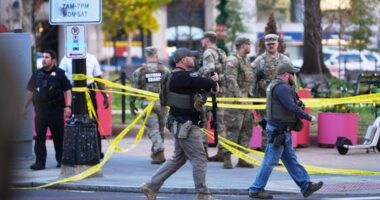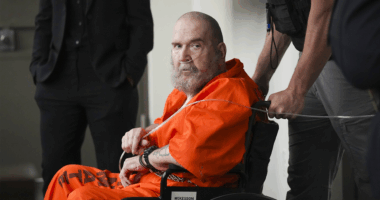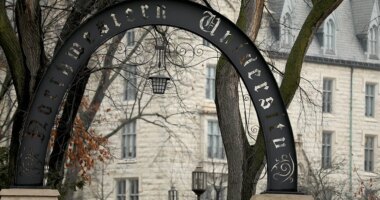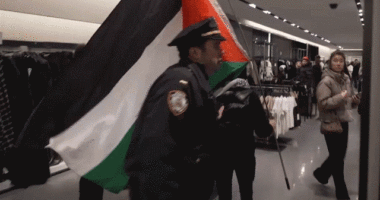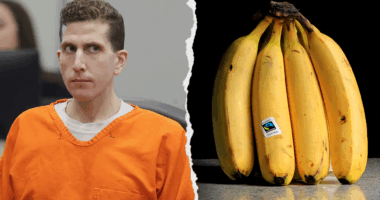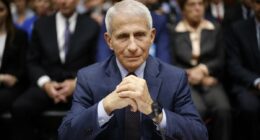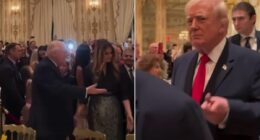Share this @internewscast.com

MANCHESTER, N.H. — As Republicans here seek a standard-bearer, Nikki Haley is making herself scarce, and GOP insiders say that could doom her long-shot bid to beat former President Donald Trump in Tuesday’s primary.
Haley has forced the cancellation of two planned debates in New Hampshire — one sponsored by ABC News and the other by CNN — by refusing to go toe-to-toe with Florida Gov. Ron DeSantis. Her schedule is light on campaign stops in a state where candidates typically pack their days with events. And, since failing to identify slavery as a cause of the Civil War last month, she has stopped taking questions on stage from voters.
Read live 2024 campaign updates here.
Haley’s team is gambling that less of her will end up being more in a race that is down to three candidates, with one of them — DeSantis — already having decided to pack it in and move his fading campaign to South Carolina.
That’s a bad bet, said Dave Carney, a veteran New Hampshire-based Republican strategist who described the state’s history of vetting presidential candidates through free-flowing town hall-style forums as sacred. Haley’s refusal to debate and take questions at her first post-Iowa event in the state could kill her campaign, he said.
“As an incumbent, maybe, or somebody who’s a front-runner — sure, you’re ahead, you’re not taking any risks,” Carney, who is neutral in the race, added. “But when you’re in second place? You need to throw f—ing Hail Marys. You have five nights left.”
In interviews with more than a half-dozen Republican officials and party strategists familiar with New Hampshire presidential primaries, NBC News found none who thought Haley would benefit by keeping her distance from voters. But she is also dealing with the reality that her uphill battle became steeper when businessman Vivek Ramaswamy dropped out of the race Monday and threw his support to Trump.
“Everybody in New Hampshire is disappointed” about Haley choosing not to debate, said Julianna Bergeron, a Republican National Committee member from the state who has not endorsed a candidate. She said declining to take questions from voters on the stump gives off a similar vibe and that Haley’s highly controlled campaigning could turn off voters who are still undecided.
“I can’t be positive,” Bergeron said, “but, yeah, I do think it matters.”
Haley spokesperson Olivia Perez-Cubas rejected the idea that Haley is avoiding New Hampshire voters.
“This is complete and total nonsense,” Perez-Cubas said. “She landed at 4 a.m. the morning after Iowa and had a full day of local press, retail stops, meetings with voters, and a rally in the North Country. After a brief stop back [in South Carolina] this morning to see her family, she’s back in New Hampshire today with two stops this evening and a flat-out schedule until Election Day.”
One Haley backer in New Hampshire, former state Rep. Kim Rice, countered that the former United Nations ambassador will do “plenty” of events and “a lot of retail stops” in the state and is “just getting them all wrapped up.”
“Nikki Haley is one of the hardest working people I’ve ever met,” Rice added. “She will be out there working hard in New Hampshire to earn every vote, shaking every hand.”
A Suffolk University/NBC10 Boston/Boston Globe poll of likely New Hampshire primary voters released Wednesday showed Trump leading at 50%, followed by Haley at 34% and DeSantis in a far distant third, at 5%.
DeSantis has majorly downshifted in New Hampshire, emphasizing South Carolina, where he hopes he can surprise and surpass Haley, the state’s former governor, and prolong his struggling candidacy. But while he has lowered expectations for his performance in next week’s Granite State primary, Haley has raised hers, declaring after Iowa that she and Trump are now locked in a two-person race.
Haley’s decision to avoid debates, which Trump has been skipping since they began last summer, gave DeSantis more license to bolt from New Hampshire. But it didn’t free Haley from the assumption that she would campaign harder here. She has long made clear that the state was central to her strategy, famously telling voters in New Hampshire in early January that they would “correct” the outcome of the Iowa caucuses.
“She rose to prominence and then they put her in a bubble,” said Michael Biundo, a longtime GOP strategist in New Hampshire who worked as a senior adviser to Ramaswamy.
“She is behind,” Biundo added, “and to cancel on debates, and to treat New Hampshire like it’s not the first in the nation and it’s just one of the Super Tuesday states — which is what she’s treating it like — I think is a huge mistake. We have a different way of thinking here.”
Because the debates are a portal to large audiences, rather than the smaller town hall forums, the choice to scratch them particularly sticks in the craw of Republicans who believe voters should have a chance to assess candidates by the way they answer questions.
“The decision for ambassador Haley not to have a debate seems imprudent,” Republican state Rep. Bill Boyd said. He called her approach a “huge missed opportunity” to reach out to undecided voters like himself.
“Anything that happens between now and Tuesday is going to factor into my decision-making,” he said, adding that he was “frustrated” by her choice to snub the “time-honored tradition” of using debates in the state to talk to voters here.
But the question-and-answer sessions that have made New Hampshire voters famous — or notorious — for eliciting raw responses from candidates are essential to the state’s political identity. Traditionally, candidates criss-cross the small state in a wild sprint between the Iowa caucuses and the New Hampshire primary, speaking to as many as four or five separate audiences in a single day. At the end, they almost always open themselves up for rhetorical poking and prodding from the crowd.
“If somebody’s pandering or not telling the truth, you don’t need the press to call them out here in New Hampshire,” Bergeron said. “Because somebody at one of the house parties will call them out.”
The combination of the short window between contests, the ease of traveling from one end of the state to the other, and settings more intimate than arena rallies makes New Hampshire uniquely situated for what amounts to a quadrennial week-long political Lollapalooza.
Haley has good reason to understand that: Not only had she held more events than her remaining rivals between the last week of May and Jan. 24 — 46, to 43 for DeSantis and 7 for Trump — but she watched DeSantis’ numbers in the state plummet after he chose not to take questions from voters or the media earlier in his campaign.
But Haley appears to be moving in the opposite direction. In the state that now represents ground zero in her battle against Trump, Haley since Tuesday has held one public event, with one more scheduled for Wednesday night: a rally with Gov. Chris Sununu, her most prominent New Hampshire endorser.
Haley also has been giving a stripped-down version of her stump speech and ending without taking questions for weeks, though she often stays afterward to take pictures and make small talk with attendees. (She also accepted questions during “telephone town halls” she held to replace events canceled due to bad weather last week.) Her new format raised eyebrows in Iowa, but it became even more noticeable Tuesday when she did the same at her single New Hampshire event.
“I’m the only one that’s not running a basement campaign,” DeSantis said during a campaign stop Wednesday in Hampton, N.H.
While some New Hampshire Republicans were critical of Haley for not running an even more aggressive campaign there this week, DeSantis is ceding the state and Trump is only appearing for nightly rallies. Voters are still getting bombarded with ads in their mailboxes, but the diminished presence of GOP candidates is pronounced. Rep. Dean Phillips of Minnesota, a long-shot Democratic candidate, has announced more public events than any of the Republicans through the end of this week.
“Avoiding the press is not a winning strategy, and at this point hoping for a good showing is like receiving a participation trophy,” Rick Gorka, who served as a spokesperson on Republican Mitt Romney’s 2012 presidential campaign, said of Haley. “Might make you feel good, but it’s pointless.”
Haley has added two stops to her schedule later in the week, and there could be more in the offing. But some supporters here say they have concerns that Trump’s lead has grown since Ramaswamy dropped out and endorsed him following the Iowa caucuses.
“The Ramaswamy departure from the presidential race is likely to widen the gap between President Trump and Nikki Haley in New Hampshire,” said one Haley donor in the state.
Sean Van Anglen, a onetime Haley supporter who says he is now undecided, expressed disappointment at her debate decision and her light schedule.
“Seems like Haley has given up,” he said.

